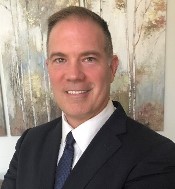Utilizing the Rolling Wave Lifecycle
FEATURED PAPER
By Dr. Jay C. Hanan and Dr. Steve Ford
Colorado, USA
This article intends to build upon the “novel approach to determining which tasks are on track, falling behind, or ahead of schedule in a project characterized, at least in part, by Rolling Wave planning cycles,” as presented by the authors in Ford et al. (2023). In that article, we presented a new key performance indicator (KPI) we named the “Early Warning System,” consisting of a series of formulas to compare a task’s estimated duration, estimated end date, and percent complete to present a manager with a snapshot of whether the project task(s) was on track. This article extends that process to propose a similar methodology for program managers administering multiple projects, all utilizing the Rolling Wave lifecycle, to meaningfully monitor and control scope, schedule, and cost in an environment often characterized by ambiguity.
Rolling Wave
There are two broad categories of project management: predictive and adaptive (PMI, 2021; Kerzner, 2022; Kloppenborg et al., 2019; PMI, 2017). The predictive (or Waterfall) lifecycle is typically characterized by intense and detailed planning efforts (sometimes called Front End Loading [FEL] or Front End Engineering Design [FEED]) followed by the disciplined execution of the plan, with as few deviations as possible. The planning effort often takes months, if not years. In a traditional Waterfall lifecycle, organizations often use metrics and KPIs such as earned value management (EVM), including cost, schedule, scope, quality, and risk variance as measured against the baseline, which the project manager sets before execution begins (PMI, 2021; Kerzner, 2022; Kloppenborg et al., 2019, PMI, 2017).
The adaptive lifecycle approach is best utilized when elements of ambiguity exists in the project’s scope, schedule, or cost. Two approaches in an adaptive project environment are Rolling Wave and Progressive Elaboration. A Rolling Wave lifecycle utilizes an iterative planning process (Progressive Elaboration) to capture increasingly detailed information regarding scope, schedule, cost, risk, and quality as the project progresses. The Project Management Institute (2021) describes Rolling Wave planning as “an iterative planning method in which the work to be accomplished in the near term is planned in detail, while the work in the future is planned at a higher level,” as seen in Figure 1.
More…
To read entire paper, click here
How to cite this article: Hanan, J., & Ford, S. (2024). An Early Warning System for Programs Utilizing the Rolling Wave Lifecycle, PM World Journal, Vol. XIII, Issue IX, September. Available online at https://pmworldlibrary.net/wp-content/uploads/2024/09/pmwj145-Sep2024-Hanan-Ford-program-early-warning-system-for-rolling-wave-lifecycle.pdf
About the Authors

Dr. Jay C. Hanan
USA
![]()
Jay Hanan holds two BSs from Oklahoma Christian University (1997) and an MS (1999) and Ph.D. (2002) in Materials Science from Caltech. Dr. Hanan attended the Executive Management Program at Stanford in 2015. He developed a novel R&D management method wile transferring intellectual property on polymer nanocomposites he developed as a professor at Oklahoma State University (since 2005) to industry, one of over 400 patents, and now serves as a Technical Director in R&D at Origin Materials while maintaining a part time roll in academia where he brings real world opportunities including design projects with a PM component to Mechanical and Aerospace engineering students.

Dr. Steve Ford
Colorado, USA
![]()
Steve Ford holds a BS from the US Air Force Academy (2004), an MS in Space Studies from the University of North Dakota (2009), and a Doctorate of Management – Project Management from Colorado Technical University (2021). Steve is currently the President and CEO of Advanced Applied Project Management Solutions, Inc, a project management, change management, and risk consulting firm. He holds numerous project management-related qualifications, including Project Management Professional (PMP), Risk Management Professional (PMI-RMP), Agile Certified Practitioner (PMI-ACP), Lean Six Sigma Black Belt Professional, Project Management- Lean Process Certified, Lean Supply Chain Management Certified, and Lean Culture Certified. He has over 20 years of aerospace and construction experience in project and risk management. He can be contacted at Steve@aapms.net.









